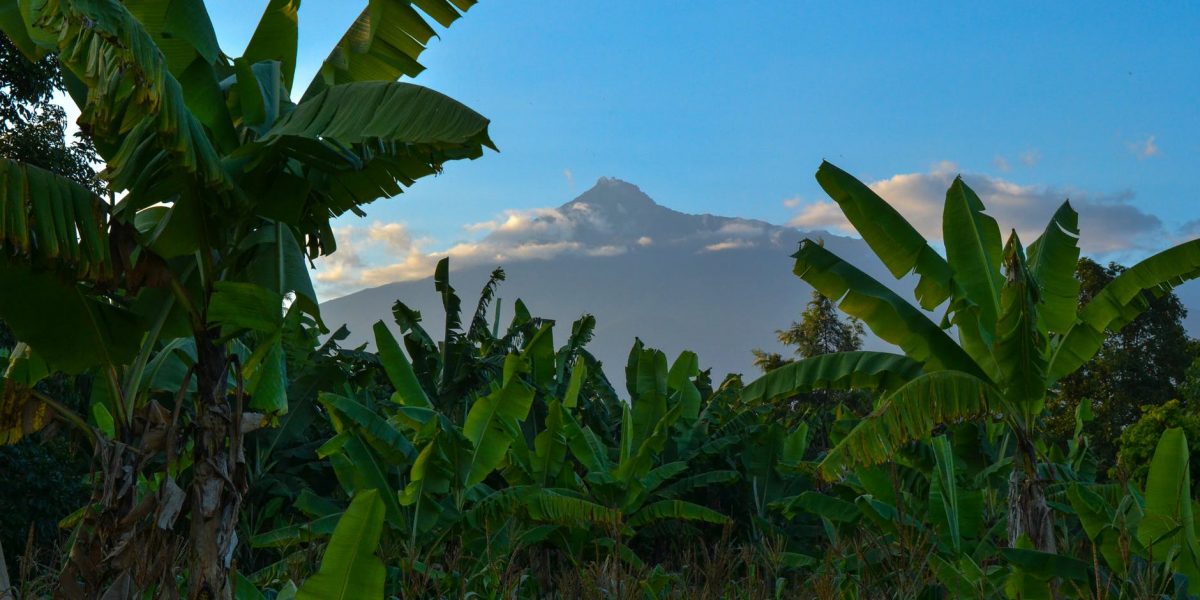The United Nation’s Food and Agriculture Organization has warned that declining biodiversity is threatening food supplies globally.
However, it is our food production systems that have been the major driver of biodiversity loss. Food and drink production has driven 75% of deforestation to date and agriculture is the top threat for 86% of plant and animal species known to be at risk of extinction.
Across Africa, agriculture has the potential to not only deliver food security but to be a driver of economic growth. It is, however, critical that environmental and societal impact are given priority when making decisions on the development of the sector.
How can the sector find the balance between creating economic opportunity and implementing sustainable practices that positively impact ecosystems?
AfricaLive speaks to industry leaders from across the continent on the challenges & opportunities in developing sustainable African agriculture.
Sustainability
Africa can leverage some of the established methods on increasing yield, such as using adequate fertilizers, data-driven farming, alternative farming methods like urban farming, better seeds while investing in finding other ways to improve the yield per acre. Overall, there needs to be more investment and focus on how to do more with less.
We also need to reduce production losses to the minimum levels possible across the value chains. According to the Food and Agriculture Organisation of the United Nations, post-harvest losses can be as high as 50% in Africa, which means producing twice as much as required to get the desired output. And if growth is via acreage increase, then the environment’s damage is an obvious consequence with minimal economic benefit.
Also, there is a need to focus on streamlining the value chains to capture more value lost to several middle players. There are too many players between the farmers and the main markets. Intermediaries reduce value attributable to the farmers and potentially also increases losses. According to Benin’s African Cashew Initiative, intermediaries increase costs on average by 15%, which could be significantly higher in other markets.
Overall, this means that we need to look at the value chains to eliminate inefficiencies and improve effectiveness. This approach will require investments from African governments and private sector players.
Ayodele Olajiga, Co-Founder of Foodpro Limited and Independent Consultant. Nigeria and UK.
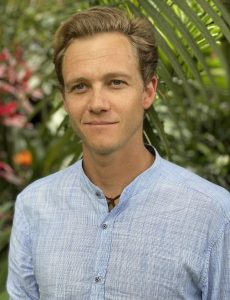
Traditional farming and fishing methods used to be very sustainable. The problem is that nowadays they are not traditional anymore. The common farmer that may have come from a traditional farming background is mostly practicing monoculture. Pastoralists are overgrazing their rangelands – unlike their forefathers who practiced rotational grazing and understood the importance of the carrying capacity of their natural grazing habitats.
Fisherfolk have discovered nets and commercial ways and due to lack of legislation being followed or governed, they have the means to wipe out their fishery very quickly and very easily.
At the end of the day, they live from day to day and can’t afford to think about tomorrow.
Food security will need to be delivered by a combination of large, medium, and small acreages. Industrial agriculture can be influenced positively by regenerative practices. It will take time to convert all the production methodologies into better ones, but of course it is possible.
Sven Verwiel, Managing Director, Tamalu Farm and L.E.A.F Africa. Kenya.
Value Addition
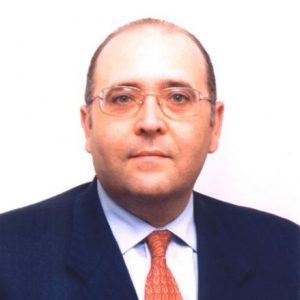 With the new African Continental Free Trade Area Agreement, we see new opportunities coming through and more engagements with both the public and private sector. There will be studies done to assess the impact of the free trade area as well as efforts to make the private sector comply with market requirements. A company that was working exclusively in the Senegalese market, for instance, will have to adapt if they are to enter the Tanzanian market for instance.
With the new African Continental Free Trade Area Agreement, we see new opportunities coming through and more engagements with both the public and private sector. There will be studies done to assess the impact of the free trade area as well as efforts to make the private sector comply with market requirements. A company that was working exclusively in the Senegalese market, for instance, will have to adapt if they are to enter the Tanzanian market for instance.
I foresee challenges in power supply that can negatively impact the production of processed food. African countries trade in fresh fruit and vegetables primarily, and a lot of food perishes during transit, so we need to improve our manufacturing capabilities, to add value to the food, and increase our earning potential through exportation.
We work in partnership with a West African country that exports 95 per cent of its cashew nuts to India and Vietnam. Those two countries process and resell the cashews to other countries in the world. Our studies have shown that there is a very steady market for cashew kernels even in the countries where the raw materials come from. If we industrialise, therefore, we will be able to close in on this market and keep the money in the country.
Walid Gaddas, Managing Director at STECIA International. Tunisia
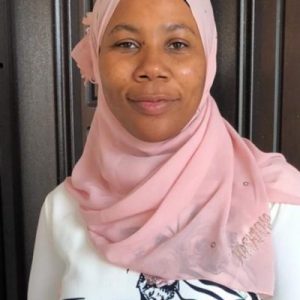 Cocoa has been an important commodity for our country. Cocoa is not just a cash crop for us; it has also become part of our politics. The cocoa sector feeds about 800,000 people in the country and issues that affect the industry can be quite emotive. Unfortunately, our industry has suffered a dip in production in recent times. The dip in production has been occasioned by climatic changes as well as factors such as disease. The government has put in place measures whose impact will start being felt in a few years with the expected rise in volumes of production.
Cocoa has been an important commodity for our country. Cocoa is not just a cash crop for us; it has also become part of our politics. The cocoa sector feeds about 800,000 people in the country and issues that affect the industry can be quite emotive. Unfortunately, our industry has suffered a dip in production in recent times. The dip in production has been occasioned by climatic changes as well as factors such as disease. The government has put in place measures whose impact will start being felt in a few years with the expected rise in volumes of production.
The government is putting a focus on increasing production while also encouraging diversification in the overall agriculture sector. Adding value to our cocoa is also part of our national strategy. Value addition will help increase the value of our product, boost our standing in the global cocoa industry, and lead to job creation. Diversification will also see us improve the agricultural sector and boost our national revenue.
Going forward cocoa will not be the dominant crop in Ghana if our diversification plans come into fruition. Cocoa will still be an important and relevant crop but it won’t be as prominent as it is now.
Hajia Maria Adamu, Managing Director at Federated Commodities. Ghana.
 Our firm got its start after our founder noticed that East African countries largely engaged in exporting raw coffee. He spent time studying the market and trying to understand why adding value locally was so difficult. FairAfric was then born to kick start value addition efforts in Ghana. He began by working with the government before getting into private-sector dealings. After we found ourselves in frequent competitive disadvantages, we decided to establish our chocolate making factory here in Ghana.
Our firm got its start after our founder noticed that East African countries largely engaged in exporting raw coffee. He spent time studying the market and trying to understand why adding value locally was so difficult. FairAfric was then born to kick start value addition efforts in Ghana. He began by working with the government before getting into private-sector dealings. After we found ourselves in frequent competitive disadvantages, we decided to establish our chocolate making factory here in Ghana.
In 2019, we achieved a 10,000 bar per-hour processing capacity here in Ghana. It was amazing to get this done right in the middle of the pandemic. Our idea of value addition is not just turning beans into chocolate bars, it’s also about empowering locals by creating opportunities. Our outreach extends to farmers and also local people that help this industry move forward through their talents.
We are proud to have reached the million-bar milestone and can also confirm that our chocolate is 100% organic.
We must protect our yield by embracing sustainable practises. Our appreciation for sustainable farming has led us to encourage farmers to embrace these methods as well. Change can be tough with farmers that have inherited the farms from previous generations that didn’t know much about sustainability though.
We, therefore, pursued an incentive system where farmers get paid 600 dollars per ton if they practise sustainable farming. Farmers that work with the Fairafric co-operative get an additional premium as an incentive.
Since farmers want to enjoy these benefits, it becomes easy to convince them to incorporate sustainable farming methods.
Our long term plan is to impact surrounding communities positively through our successes. We want people here to have access to potable water, education, the internet and healthcare. Its high time that all organisations that benefit in one way or the other from this industry, make contributions towards the greater good.
Michael Marmon-Halm, Managing Director at Fair Afric. Ghana
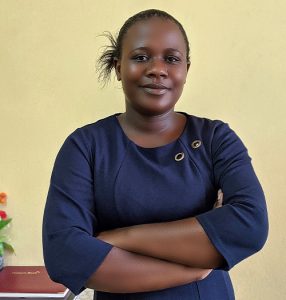 We are the only coffee processing plant in East and Central Africa. It is important to emphasize that because remarkably, even people in the Tanzanian and East African food & beverage sector are unaware that value addition is being carried out here in Tanzania.
We are the only coffee processing plant in East and Central Africa. It is important to emphasize that because remarkably, even people in the Tanzanian and East African food & beverage sector are unaware that value addition is being carried out here in Tanzania.
Even within East Africa, people import processed coffee from Brazil and Malaysia while we have the product here in our stores. We have to improve awareness. We also work in bulk handling of coffee and perhaps this hasn’t helped us brand the value added products properly. We now have improved branding with our Tanica and Kilimanjaro brands, which are gaining in popularity.
We must look at value addition because as our production capacity goes up, there’s risk of massive surpluses. Value addition helps us create more products and expand our market appeal.
Our factory at the moment can only add the value to 2% of the produce we receive, but we want to improve this. The big barrier to value-addition in Africa is the cost of the technology.
Our current machines have been going since 1963, and their longevity is remarkable. To be honest, it is almost a miracle they still work so well. We do, however, acknowledge the need to upgrade and that’s in the pipeline. We would gladly welcome partnerships and investments in our journey to gaining a bigger footprint in East Africa.
Rodness Milton, Managing Director at TANICA PLC. Tanzania
Education, Youth Engagement & Skills Development
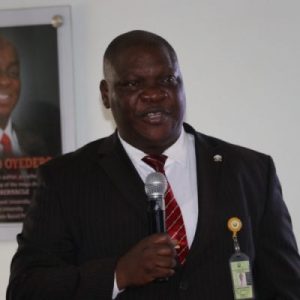 Being a university of agriculture, one thing going for us is that we have a national council and other schools of agriculture in the country that we work with. We also have a memorandum of understanding with the National Centre for Agricultural Mechanization, and positive relations with the Federal Institute for Industrial Research.
Being a university of agriculture, one thing going for us is that we have a national council and other schools of agriculture in the country that we work with. We also have a memorandum of understanding with the National Centre for Agricultural Mechanization, and positive relations with the Federal Institute for Industrial Research.
Our production agenda is supported by the National Cereal Research Institute situated in Badeggi Niger State as well as the Nigeria Institute of Oil Palm Research in Benin, Edo State. We have done well to ensure that we have not only global partnerships, but also local ones. Apart from our work with these institutions, we are doing community work by getting local farmers to work our lands and training them on cereal farming.
In five years, we will be the leaders when it comes to the Sustainable Development Goals (S.D.Gs). We have put in place an S.D.G exhibition centre that pushes us to achieve our goals. Our agricultural focus will have a great deal of research to help keep hunger and starvation at bay in the country.
Landmark University is also looking to produce significant publications that will get us a higher ranking in the next two to three years. Our vision for the next five years is not to just rank in the Times Higher Education ranking, but to rank well. We want to be competing with prestigious institutions all over the world. Our ultimate vision is to feed the world, but that has to start with feeding our campus, community, our state, and then the country. In summary, we want to ensure that our agrarian agenda is well developed, and we want to rank well globally in five years.
Prof. Adeniyi Olayanju, Vice-chancellor of Landmark University. Nigeria.
 Growing up, agriculture was more of a punishment, so it baffled even my parents when i chose this field. We started this organisation without a clear picture of what the future would hold. All I knew is I wanted it to be an entity that brings about impactful change in the lives of struggling youth. We are still on the growth path and every day we have a clear picture of where we are headed.
Growing up, agriculture was more of a punishment, so it baffled even my parents when i chose this field. We started this organisation without a clear picture of what the future would hold. All I knew is I wanted it to be an entity that brings about impactful change in the lives of struggling youth. We are still on the growth path and every day we have a clear picture of where we are headed.
We are glad that we are getting some international attention as well. People in Liberia, Nigeria and other places have called us to go introduce our interventions in their jurisdictions. Our long term plan is to explore possibilities and opportunities in other countries, but we must have a solid foundation at home first.
I believe the future is now. About a decade ago, the conversations that were being had about agriculture were very different. We have come to a point where it’s no longer a shame to be a farmer. Every day we are creating the future, with everyone along the value chain playing their part. Our youth have shown that with the right support, they can do wonders. We are calling for as well as forming partnerships that will see us grow in areas of crop improvement and mechanisation. I believe that we are setting ourselves up nicely to become a food secure country.
Alberta Nana Akyaa Akosa, CEO Agrihouse Foundation. Ghana.
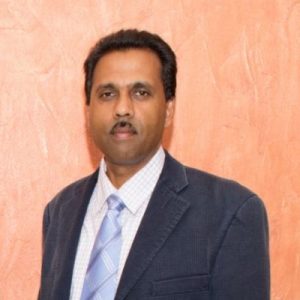 When a country moves from a poor developing nation to a middle-income nation the young people don’t want to dirty their hands any more. It is normal, people don’t want to get up at 5am to go work in the fields. So, there is that problem we have – people need to eat and for that people need to farm. We have 150 farmers who farm for us at SKC Surat.
When a country moves from a poor developing nation to a middle-income nation the young people don’t want to dirty their hands any more. It is normal, people don’t want to get up at 5am to go work in the fields. So, there is that problem we have – people need to eat and for that people need to farm. We have 150 farmers who farm for us at SKC Surat.
We have a project where we inculcate our farmers – who are third generation now – with best practices to stop putting too much insecticide and pesticide on their vegetables. There is that problem in Mauritius which has been passed down from previous generations. There are many pests like fruit flies in Mauritius and there is a perception that in order to kill the pests the more you spray the better. What is happening though is the food is absorbing the pesticide, which leads to very serious health problems including increased risk of cancer for the consumers, for the people of Mauritius.
The international Good Agricultural Practice (G.A.P) programme intends to put an end to this type of practice. In Europe, for example, you have EuroGAP and products which don’t meet the standards will not be imported.
In Mauritius the government has been trying to address issues such as the overuse of pesticides by introducing MauriGap, however after several years it was clear they were not succeeding. We have more leverage with the farmers though and can talk to them more directly in a way they understand.
Suren Surat, CEO at SKC Surat. Mauritius.
Finance
 Launching a commodity exchange in Ghana essentially meant launching a system which had never existed before. Such a move would come with challenges anywhere in the world. There will be some who are resistant to change and don’t see the need for such a platform. Regarding the sub-region, each country also has its own plans and ambitions. We can, however, benefit from the fact that West African countries are all firmly focused on improving their agricultural sectors.
Launching a commodity exchange in Ghana essentially meant launching a system which had never existed before. Such a move would come with challenges anywhere in the world. There will be some who are resistant to change and don’t see the need for such a platform. Regarding the sub-region, each country also has its own plans and ambitions. We can, however, benefit from the fact that West African countries are all firmly focused on improving their agricultural sectors.
The onus is on us as individual countries to form synergies that will see us achieve our individual and collective goals. The foreseeable problem amongst countries when it comes to proprietorship, is the need for ownership and self-preservation but that shouldn’t deter us from the overall goal.
Perceptions are changing, new habits are forming, and people appreciate the role technology through the exchange is playing in agribusiness. Farmers are thrilled by the fast payments, and those who aren’t comfortable using the technology (electronic trading system) are co-opting their children to be floor trading representatives for them. This is a clear example of attracting youth into agribusiness. Finally, opportunities exist for creating partnerships, but they must be constructed in a way that adds value to all parties involved.
Tucci Ivowi, CEO at The Ghana Commodity Exchange. Ghana
The bridge between micro and institutional finance need to be bridged sooner than later – or else we risk losing out completely as younger generation farmers will cease to exist and older generation farmers will go out of business.
Considering the majority of food production on the continent comes from smaller acreages, this gap is fundamental. Farming is not cheap and anyone who thinks it is, is living in the past!
